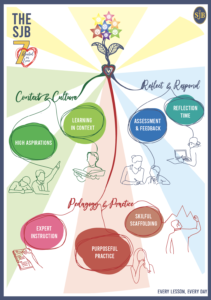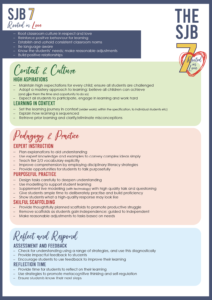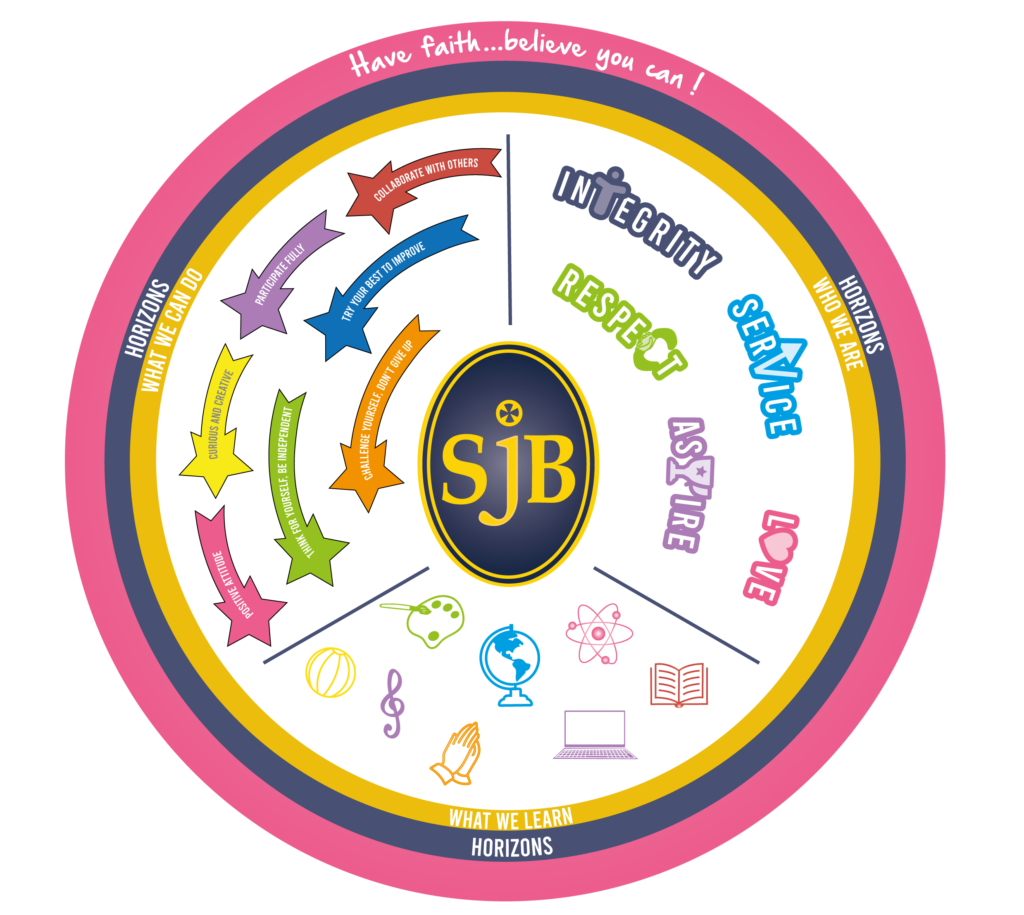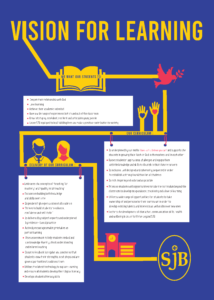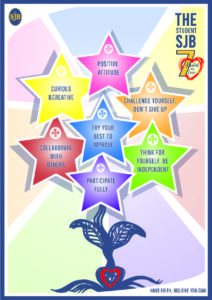The role of a form tutor is extremely important; you are the first teacher your form sees each morning and the first link in the pastoral chain of support. The relationship a child has with their form tutor is often very different to that of any other teacher, it’s a vital relationship for students and their future successes. It is important that you take the time to get to know your tutees; their strengths, the things they like doing, who they are friends with, what they enjoy doing outside of school, where they struggle, and what their biggest challenges are. Your role in the morning is to set them up for the day and ensure they are ready to learn.
The form tutor should check uniform, jewellery, equipment etc. at the start of the day to make sure the students are sent off to their first lesson prepared, punctual and presented smartly.
FORM TIME
Students begin each day with their form tutor from 8.50-9.15am. We ask form tutors to be in their rooms and open them to students from 8.40am.
Registers should be taken on Arbor at the start and any late students added as they arrive in form time. Students late to form should be marked as such on the register so that sanctions can be issued appropriately.
Each year group has one assembly a week, either a Year group assembly or a Key Stage assembly. The rota is below:
| Year Group/Key Stage |
Mon
| KS3 or KS4 or 5 on rotation |
| Tue | Year 12 & 13 on rotation |
| Wed | Year 10 & 11 on rotation |
| Thur | Year 7 |
| Fri | Year 8 & 9 on rotation |
N.B Where a rotation takes pace it will not always follow a week A/B order due to the way holidays/INSET days fall. HOYS: Please follow the running order of the above table. Ea. Year 10 will run one week Year 11 the next, Year 8 one week, Year 9 the next etc.
PROMOTING OUTSTANDING ATTENDANCE
Promoting oustanding attendance for all students really is the responsibility for all, with the role of the form tutor vital in it’s success. As a form tutor you will be expected to complete the register every day during registration at 8.50am using the correct codes as well as updating the register if a student is late or has an appointment. You will also be expected to work closely with your head of year and the pastoral support manager to implement the attendance policy accordingly to help improve the attendance of students in your tutor group.
PROMOTING OUTSTANDING BEHAVIOUR
As with attendance, promoting outstanding behaviour across the school is the responsibility of all. As a form tutor you will be expected to implement the behaviour policy both in and outside of tutor time. As a form tutor you will be required to positively manage the behaviour of the students in your tutor group through the awarding of house points for positive behaviour but also through distributing negative points where required. It’s really important that the number of house points distributed outweigh the number of negative points given every day. In addition to this form tutors will receive a weekly report highlighting to them the students in their tutor group who have gained -4 negative points over the course of the previous Monday – Friday week. It is the responsibility of the tutor to have a reflective and restorative conversation with these students and highlight any patterns and common threads over time to the head of year, more information on this will be provided to you through your head of year in your year meetings.
PAUSE FOR PRAYER
On the days when there is not a key stage or year assembly, all forms must begin the day with the Pause for Prayer resource provided (this will be sent weekly via email from Megan Hodgson). These resources will be themed around one of our five core values (Service, Integrity, Aspire, Love, Respect) on a fortnightly cycle. Megan will weave in an activity from “The Day” once a week so that our focus on literacy aligns with the theme.
Pause for Prayer is a power point linked to the theme of the week and includes a reflection, video clip, Bible passage and prayer all timed to take under 5 minutes. Slides can be presented by the tutor or students. There are optional ‘Pause for Thought’ questions if there is time to develop discussion.
If you are concerned about delivering the Pause for Prayer resource or leading Prayer in Form Time then please speak to Megan Hodgson our Chaplain who will support you.
DELIVERY OF PSHE (Personal, Social and Health Education)
PSHE helps children and young people stay healthy, safe and prepared for life – and work – in modern Britain. PSHE aims to equip students to:
- Take individual responsibility for their physical and mental wellbeing
- Understand the risks of drugs and alcohol and how to stay safe online
- Develop resilience, independence and responsibility
- Develop the personal and social skills required to succeed in commerce and industry
- Identify misleading information and be critical of misleading news or views they might encounter.
PSHE is important because it gives every child and young person an equal opportunity to develop the skills and knowledge they need to thrive now and in the future.
PSHE is a sequenced programme that builds on prior learning as pupils progress through school and like any other subject it needs regular curriculum time. PSHE is delivered to all students at SJB, every Thursday morning (Period 1), by their form tutor. Tutor groups at SJB create a sense of togetherness and belonging. This provides an environment where students feel safe to share ideas, confident enough to challenge what they believe to be wrong and take responsibility to support each other. This model of delivery improves behaviour, reduces bullying and provides relief from peer pressure.
Professional Development is provided for all form tutors to help equip everyone with the skills and confidence to deliver an outstanding provision to every student within our care. Laura Kern is the CL for PSHE; she will circulate resources one week in advance to give you time to prepare. If you have any concerns please see her in the first instance.
THE DAY
The Day is a brilliant subscription that is available to all our students via the special link on their iPads. The Sixth Form can also access it using the school username and password – this will be given to them by the Sixth Form Team.
It provides a wealth of news articles for the students to engage with; every day a handful of new articles are added. The brilliant thing about this resource is the the majority of articles can be read at different levels, meaning that students of different reading abilities can engage with the same article and be fully involved in class discussions and activities surrounding the articles. The are also accessibility features that can be turned on/off such as a dyslexic font, screen overlay etc. All articles are stored historically and categorised by subject as well so you can link them into schemes of learning to draw on.
The following guides go through how the resource can be used in class.
Staff Presentation – How to use
Guide to Six Steps
Guide to Reading Levels
Form Tutors will be given further information as to how and when to use it in form time in September during Year Meetings, it will also be linked in with Pause for Prayer in the resources sent out each week by Megan Hodgson.
